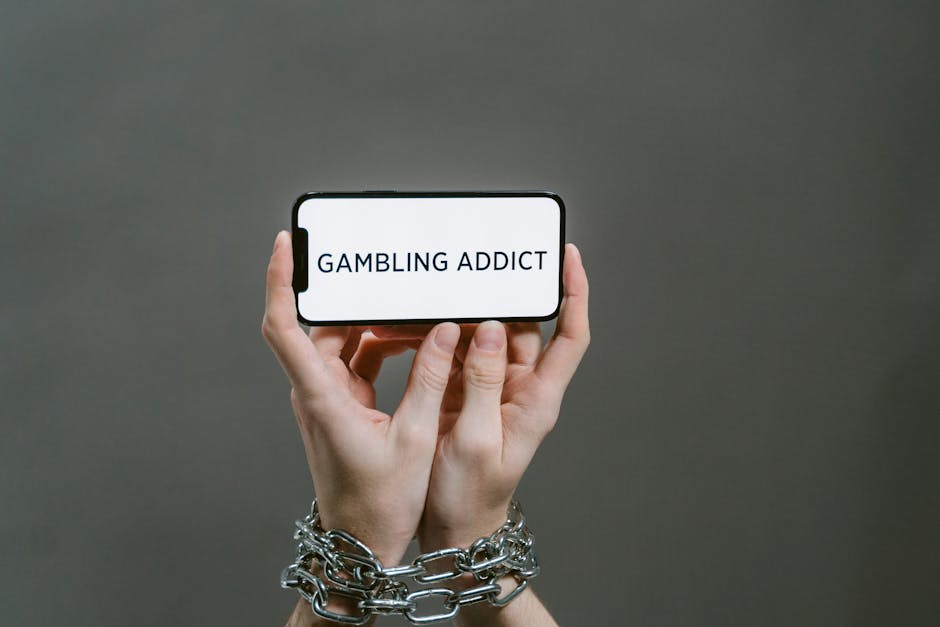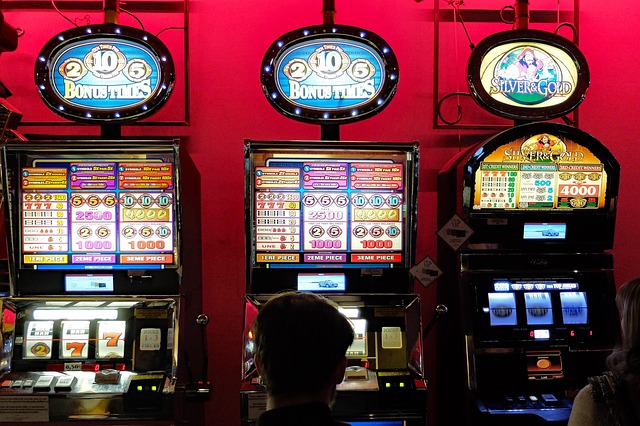Know Your Limits Before You Spin
Before chasing the excitement of a big jackpot, it’s critical to set personal boundaries. Playing responsibly starts with knowing your limits—and sticking to them no matter what the outcome.
Set Limits Ahead of Time
The best time to decide how much time and money you’ll spend is before you hit the spin button.
- Set a clear time limit for your play session
- Determine a budget that fits your financial reality
- Consider both daily and weekly caps to stay in control
Only Bet What You Can Afford to Lose
Think of jackpot games as paid entertainment—not a financial strategy.
- Never gamble with money reserved for bills, rent, or savings
- Treat your budget as the cost of fun, not an investment
- If losing the money would upset you, don’t gamble it
Don’t Chase Losses
Trying to win back what you’ve lost can quickly turn a bad session into something much worse.
- Accept that losses are part of the game—they happen to everyone
- Chasing losses often leads to bigger financial and emotional setbacks
- Take a break and reset if you feel the urge to win it all back immediately
Establishing these habits early helps keep your gaming experience enjoyable and stress-free.
Understand How Jackpot Games Work
Let’s be clear: slots and jackpot games are based on math, not magic. Every spin is random—thanks to Random Number Generators (RNGs)—and past results don’t influence future ones. That big jackpot someone hit two minutes ago? Doesn’t change your odds, not one bit.
Over time, the house always comes out ahead. That’s not a conspiracy, it’s just how the games are built. It’s called the house edge—baked-in percentages that ensure the casino stays profitable no matter how lucky some players get in the short term.
Now, two terms that get thrown around a lot: RTP and volatility. RTP stands for Return to Player. It’s a percentage that shows how much, on average, a game pays back. For example, a 96% RTP means that for every $100 wagered, the game returns $96—over the long haul. But long haul means thousands of spins, not your Friday night session.
Volatility? That’s about how a game behaves. High volatility means bigger wins but less often. Low volatility means smaller, steadier wins. Neither is better—just different styles. Know what kind of ride you’re signing up for before you spin.
Take Breaks—Seriously
It’s easy to lose track of time when the reels keep spinning and the lights keep flashing. But nonstop play messes with your head. The longer you go without a break, the easier it is to make sloppy decisions—chasing losses, raising bets, forgetting you even set a limit to begin with.
Set a timer before you start, or use session reminders if the game offers them. A simple buzz from your phone can snap you out of autopilot. Better yet, build in non-negotiable pauses. Step outside. Get a snack. Check in with yourself.
And here’s the bottom line: if it stops being fun, walk away. No jackpot is worth your peace of mind. A clear head plays smarter—and knows when it’s time to call it.
Use Built-In Tools to Stay on Track
You don’t need to manage everything on willpower alone. Most jackpot and gaming platforms offer built-in tools that help you control your play before it gets out of hand. Use them.
Reality checks pop up at set intervals to remind you how long you’ve been playing—think of them as a nudge to pause and reassess. Session timeouts let you take a forced break, giving your brain room to reset. Deposit limits and loss caps do exactly what they sound like: they stop you from going beyond your budget.
And if things really aren’t clicking? Some apps let you block yourself for hours, days, or longer. It’s not overkill; it’s smart. The game will still be there later. Use these tools before you need them—they work best as safeguards, not damage control.
Don’t Play While Emotional
If you’re riding an emotional high or low, it’s the worst time to spin. Angry? Sad? Stressed? Step away.
Jackpot games are built around instant feedback and variable rewards—conditions that mess with your head when you’re not thinking clearly. Strong emotions cloud judgment, distort risk assessment, and push you toward chasing outcomes instead of making level-headed choices.
Treat spinning like a form of entertainment—not a response to a bad day. This isn’t cheap therapy. If your head’s not in the right place, don’t push your luck. Take a beat, get centered, then decide if the game’s still something you’re choosing—not escaping into.
Know When to Call It
Winning feels good. That’s the hook—and also the trap. It’s easy to keep going, thinking you’re on a hot streak. But jackpots don’t care about momentum. The smartest players set a win ceiling before they start. That might be doubling your bankroll, hitting a round number, or simply walking away after a solid win. The point is: have a line, and respect it.
You don’t need a mega payout to call it a good session. Small wins add up, and sometimes stepping away while you’re ahead is the real victory. Discipline here isn’t about denying fun—it’s what keeps the fun from turning into regret. Celebrate modest wins, remember your ceiling, and log off while it still feels rewarding.
Watch for Red Flags
Staying in control means knowing the signs when things start to shift in the wrong direction. Sometimes, what begins as harmless entertainment can quietly slip into risky territory. Paying attention to red flags helps you course-correct before things get out of hand.
Warning Signs to Watch For
- Spending more than you planned: If you’re regularly going over your intended budget, even just “a little,” that’s a red flag.
- Hiding your play from others: Feeling like you need to keep your habits secret—whether it’s from friends, family, or partners—is a signal that something may be off.
- Playing feels more like a compulsion than fun: If you catch yourself thinking, “Just one more spin” over and over, that could point to a deeper issue.
A Pattern Worth Noticing
These behaviors don’t always explode into full-blown problems overnight—they often start small and build slowly. That’s why recognizing the pattern early matters.
- Reflect on how often you play and why
- Check whether you’re still enjoying the experience—or just chasing a feeling
- Trust your instincts: if something feels off, it probably is
Bottom line: If these signs resonate, don’t brush them off. Awareness is the first step in regaining control.
Get Support If You Need It
If things are feeling out of control, talk about it. There’s no weakness in asking for help—just self-awareness. Whether it’s a trusted friend or a professional, having the conversation can make a difference. This isn’t something you need to wrestle with alone.
There are solid, judgment-free resources out there that exist for this exact reason. If gambling is starting to mess with other parts of your life—your relationships, your finances, your focus—it’s time to hit pause and check in with someone who knows what to do.
For confidential, practical support and more information, visit: Support Resources for Problem Gamblers and Their Families.
Final Word: Keep It Fun
Jackpot games are meant to be a break—not a blur. The moment they start feeling like pressure instead of play, it’s time to step back. Keep things light. If you’re no longer smiling or thinking clearly while you play, something’s off.
Play smart. Set clear rules for yourself and stick to them, especially when you’re winning. Big wins can be thrilling, but they shouldn’t cloud your judgment. Tight control over when and how you play is what real discipline looks like—it’s knowing when to stop, even if the reels are spinning in your favor.
In the end, this is supposed to be fun. Not a grind. Not a coping tool. Hit pause when you need to. The best players don’t just know how to chase jackpots—they know when not to.




